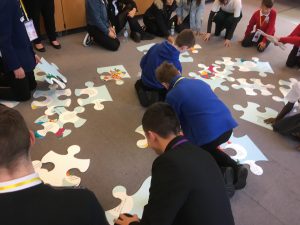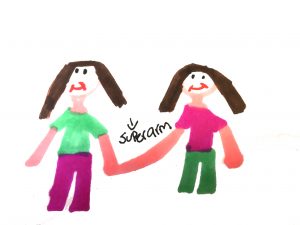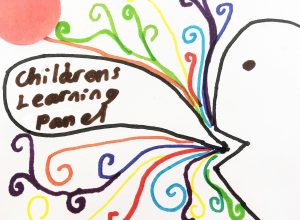 This year, the Scottish Government has invited Children’s Parliament, in collaboration with Young Scot, the Scottish Youth Parliament, and Children in Scotland, to form a Learner Panel. The purpose of the Learner Panel is to bring children and young people from across Scotland together; to gather their views on their education and shape school-level, local and national education policies based on their experiences of learning.
This year, the Scottish Government has invited Children’s Parliament, in collaboration with Young Scot, the Scottish Youth Parliament, and Children in Scotland, to form a Learner Panel. The purpose of the Learner Panel is to bring children and young people from across Scotland together; to gather their views on their education and shape school-level, local and national education policies based on their experiences of learning.
In October, children and young people travelled to Harlaw Academy in Aberdeen to focus on Health and Wellbeing – what makes us happy at school, what gets in the way and what support can be accessed. Here are some of the key points that arose from the session.
 When it comes to learning, relationships matter at both primary and secondary school level. Children value their friendships and the support from PSAs and teachers. For many of the young people in high school, the close bond that they had with their teacher at primary isn’t replicated due to the structure of secondary schools.
When it comes to learning, relationships matter at both primary and secondary school level. Children value their friendships and the support from PSAs and teachers. For many of the young people in high school, the close bond that they had with their teacher at primary isn’t replicated due to the structure of secondary schools.
Pupils noted that they believe it shouldn’t just be a given that they have to respect teachers when the teachers don’t reflect this back. It should be a two-way relationship where respect is earned both ways for good support and communication to take place.
Children and young people want a school where teachers are happy to be there and lessons can be fun and active way. School’s should be places where young people children are supported and teachers don’t shout. They should be able to include all pupils in their lessons by using sign language, treating everyone equally and giving out compliments like ‘good work’.
Teachers have to be approachable, empathetic to what might get in the way of a child or young person doing their best at school and offer support when it is needed.
 There are things in a child’s or young person’s life that can get in the way of being able to engage in classroom activities. The Learner Panel noted that bullying, racism, family problems, mental health and stress can contribute to a child or young person’s ability to learn.
There are things in a child’s or young person’s life that can get in the way of being able to engage in classroom activities. The Learner Panel noted that bullying, racism, family problems, mental health and stress can contribute to a child or young person’s ability to learn.
People who can provide support are parents, friends, teachers, head teachers, sports coaches and PSAs. The Learner Panel felt more could be done to help children and young people before their problems become bad.
If more preventative care was taken, like creating relaxed classrooms where children and young people could have peace and quiet to learn, time to wind down and talking to pupils about how they feel, this could create a more supportive environment. This in turn might encourage those people who don’t regularly speak up to feel more confident in doing so.
This is a summary of the Learner Panel’s session on Health and Wellbeing. A report will be issued in early 2019.
The Learner Panel is co-delivered by Children’s Parliament, Children In Scotland, Young Scot and the Scottish Youth Parliament.
Catrin Jeans
Imagining Aberdeen Programme Manager
Children’s Parliament